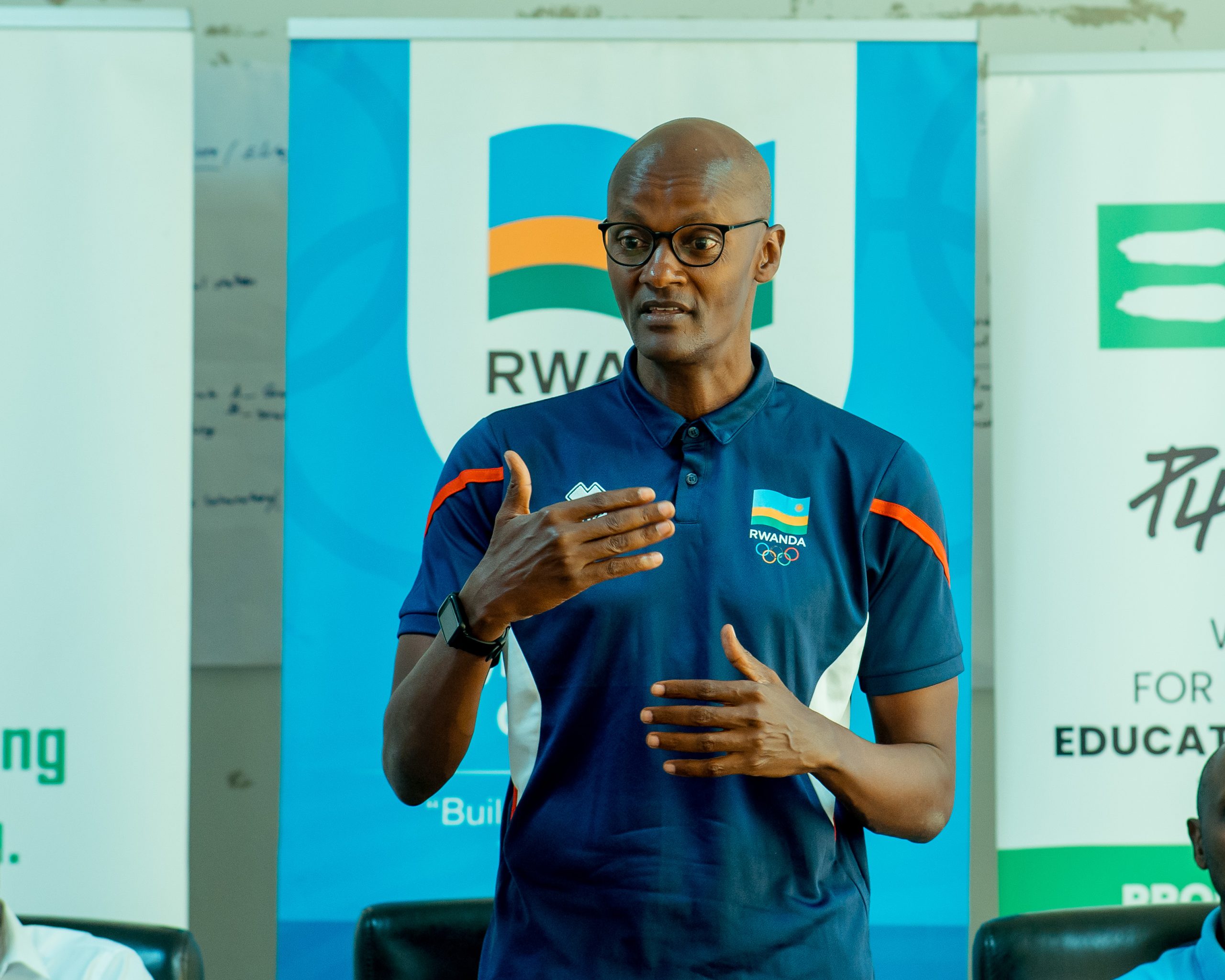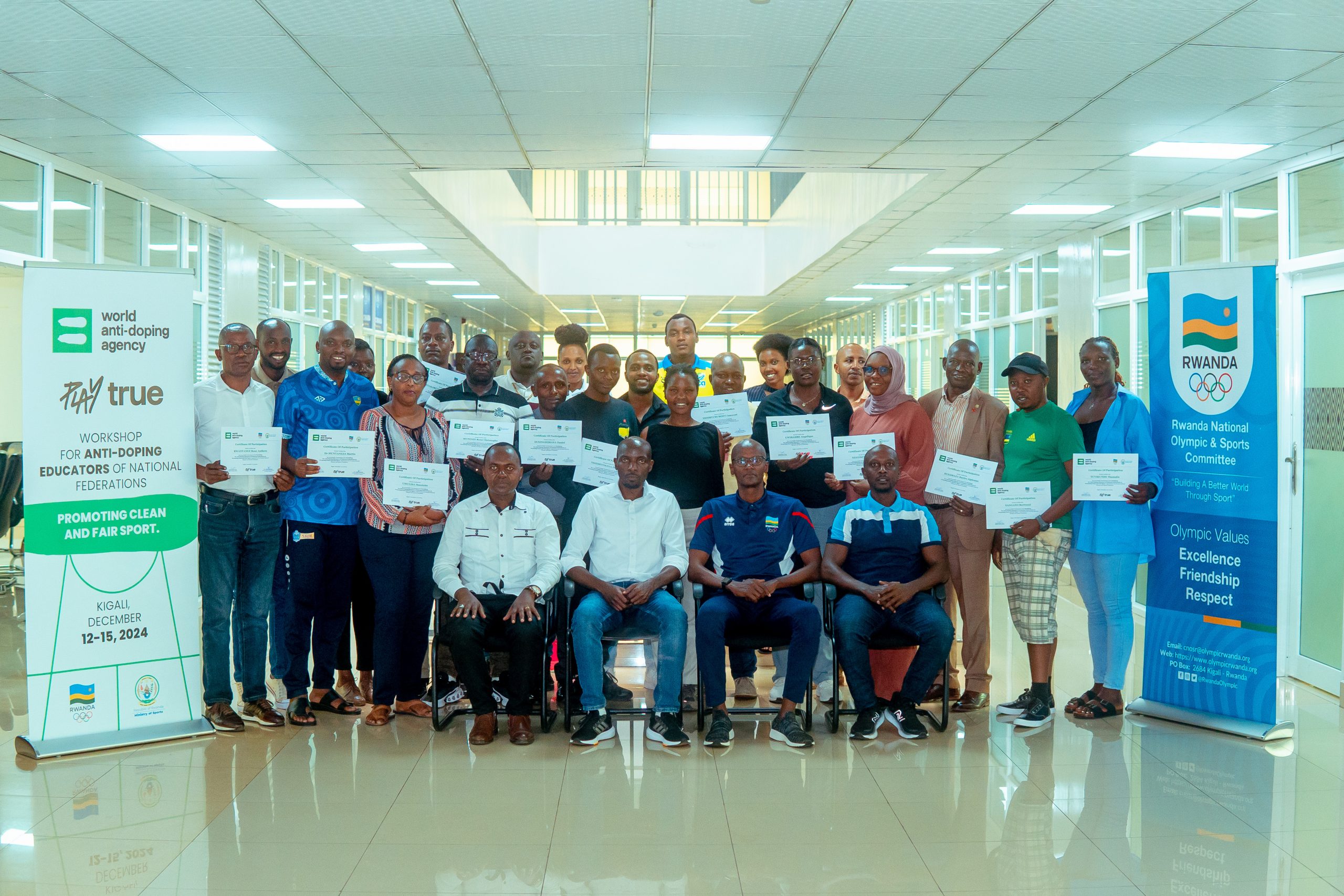The Rwanda National Olympic and Sports Committee (RNOSC), in collaboration with the Ministry of Sports and the World Anti-Doping Agency (WADA), hosted a 4-day workshop for Anti-Doping educators representing 27 national federations, running from December 12th to 15th 2024. Held at the RNOSC offices, the workshop aimed to equip participants with the knowledge and tools to promote clean and fair sports across Rwanda.
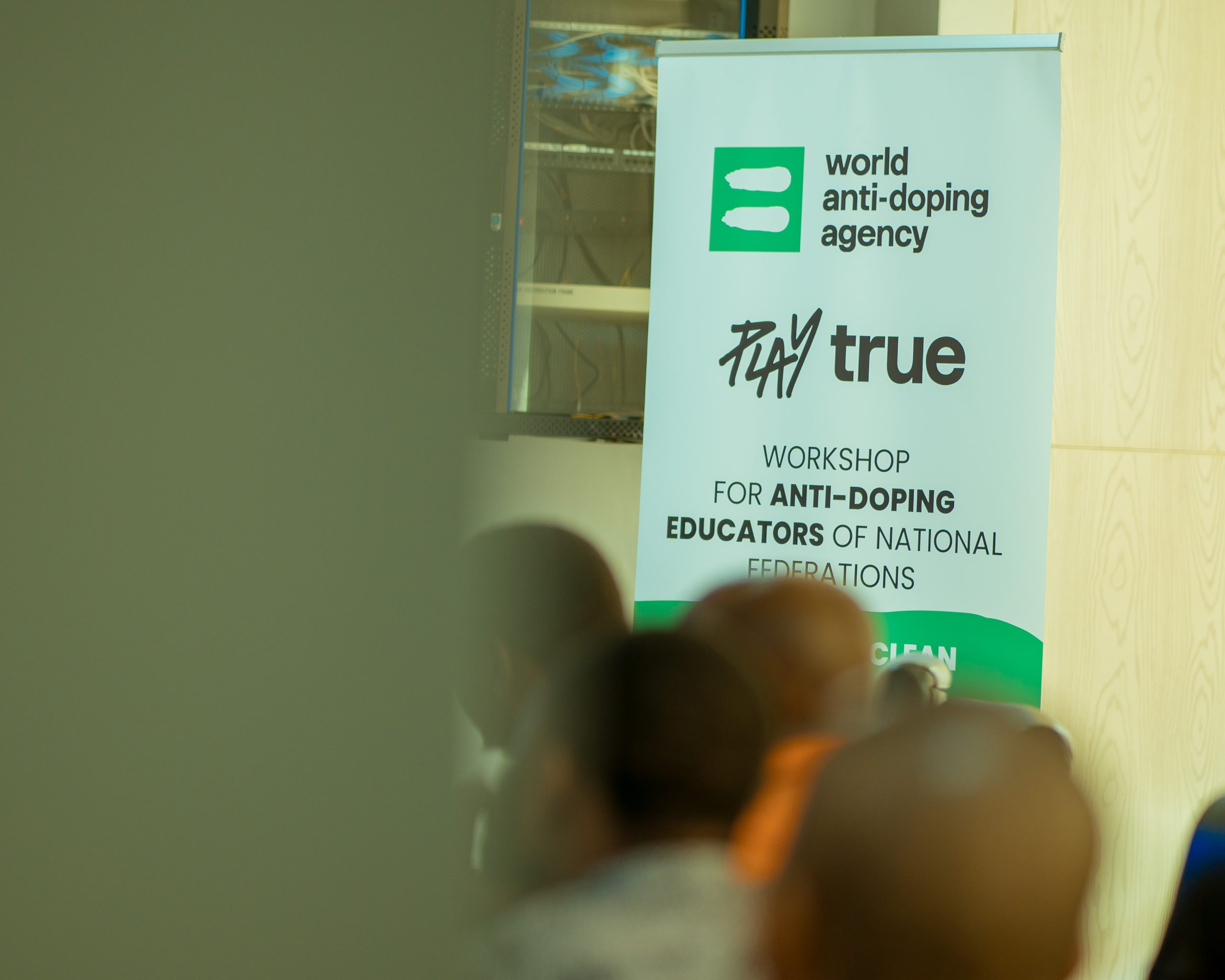
Over 50 representatives took part in the workshop, which provided a comprehensive overview of the Anti-Doping landscape. Key topics included the prohibited substances list, supplements, the 11 Anti-Doping rules and violations, doping test procedures, and strategies for educating athletes and clubs. The interactive sessions featured group activities where participants designed tailored Anti-Doping programs for their federations, ensuring practical application of the knowledge gained.
The workshop opened with a session led by Dr. Nuhu Assuman, President of the RNOSC Medical and Anti-Doping Commission, who introduced the Anti-Doping landscape, highlighting the rights, responsibilities, and rules athletes must follow. Dr. Assuman also emphasized the significance of strict liability and the consequences of doping violations.
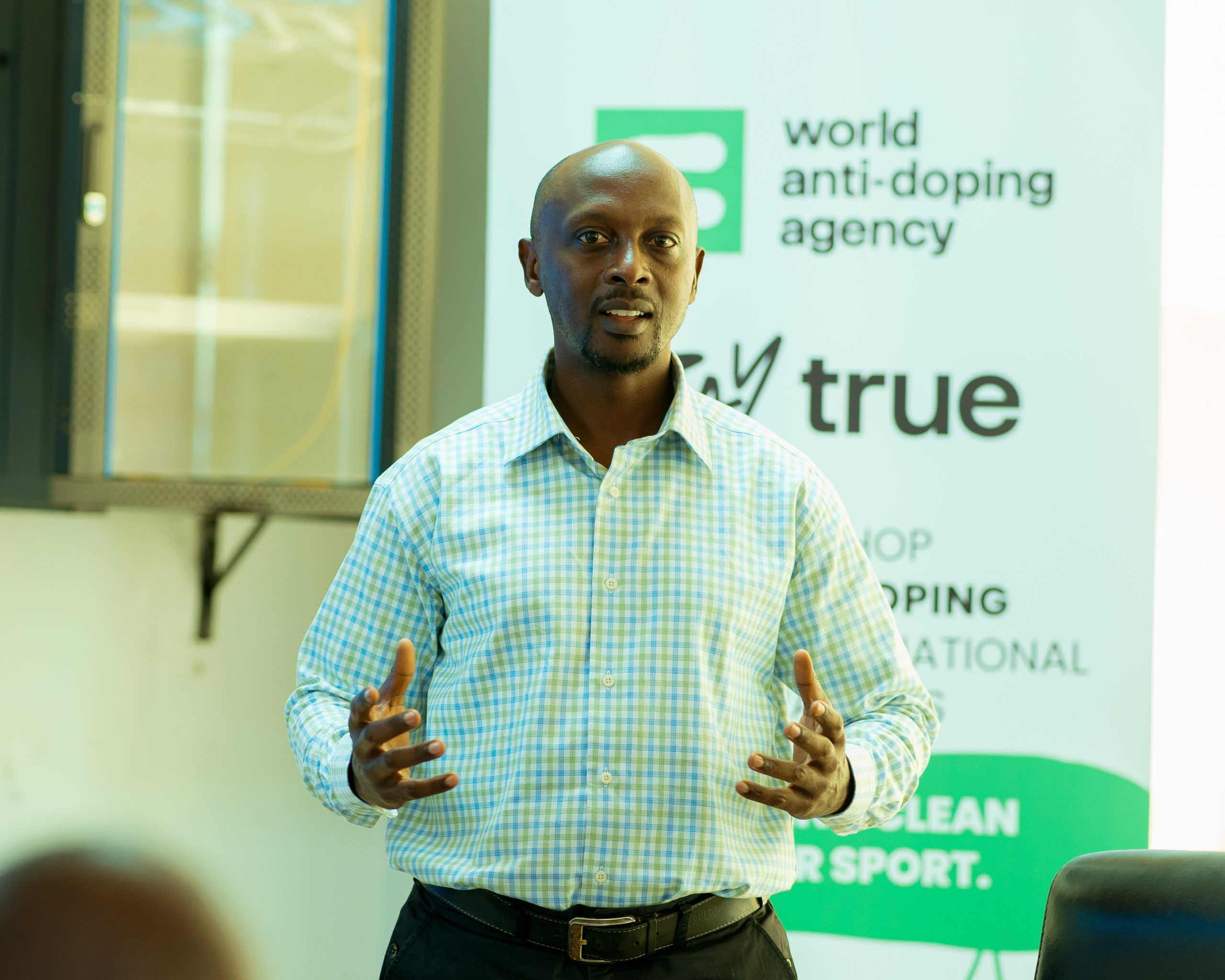
Charles Nkurunziza, Country Representative of the African Zone V Regional Anti-Doping Organization, praised Rwanda’s leadership in the region: “Rwanda is a model for the sporting sector. Our goal is to ensure athletes’ first encounter with Anti-Doping is through education, not testing, and we’re committed to supporting this effort.”
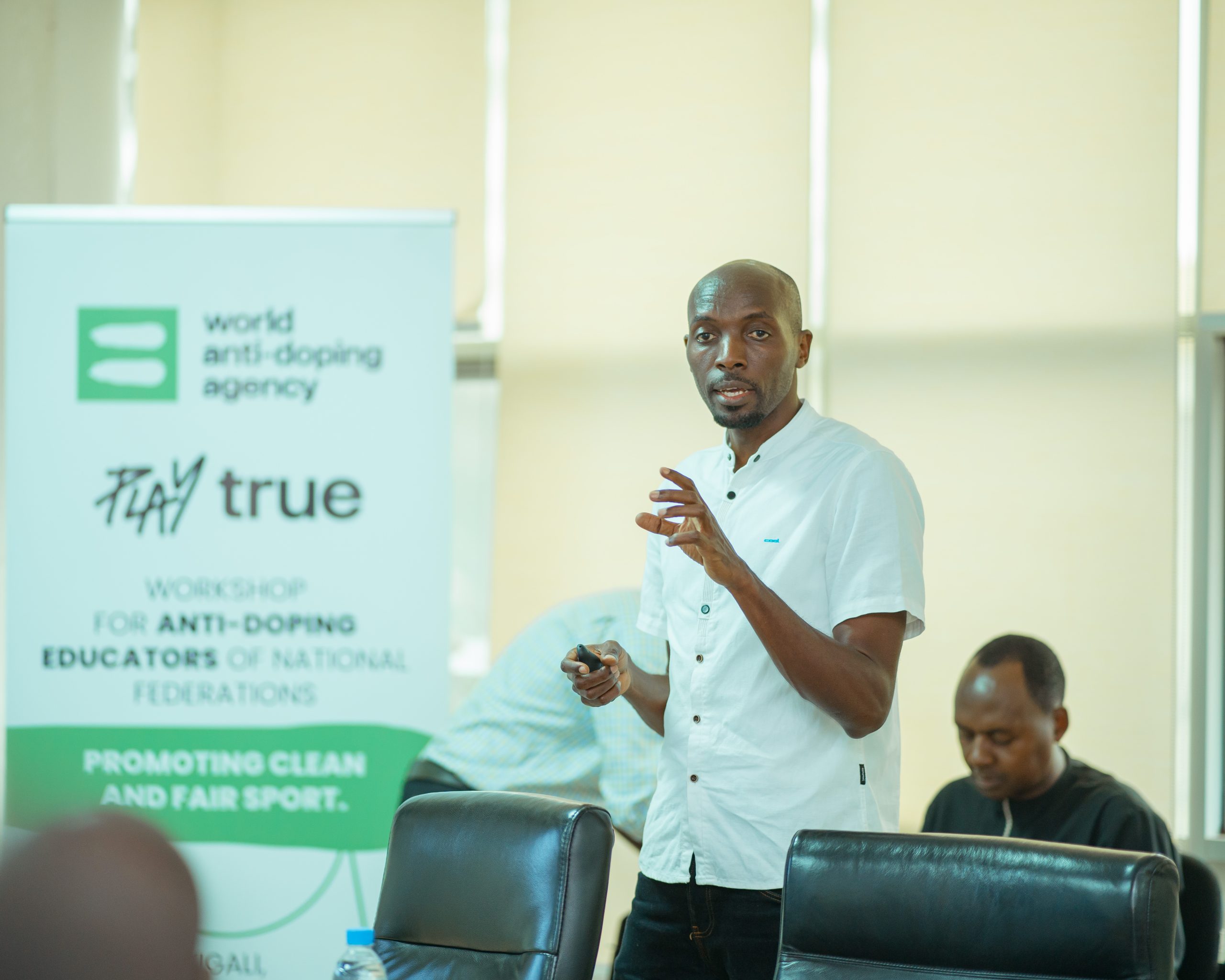
One of the highlights of the workshop was a session on the ITA reporting platform, where participants were introduced to whistleblower policies and tools to report violations. Attendees also explored the prohibited list in detail, learning to classify substances into categories such as those prohibited at all times, those banned only during competition, and those restricted in specific sports.
Participants engaged actively throughout the workshop. Rusamaza Alphonse, President of the Rwanda Swimming Federation, speaking on behalf of the participants, shared: “We’ve studied critical topics like the prohibited list, supplements, and the rules and violations. This knowledge will be instrumental in educating our clubs and athletes. We’ve also learned how to guide young athletes towards clean sport.”
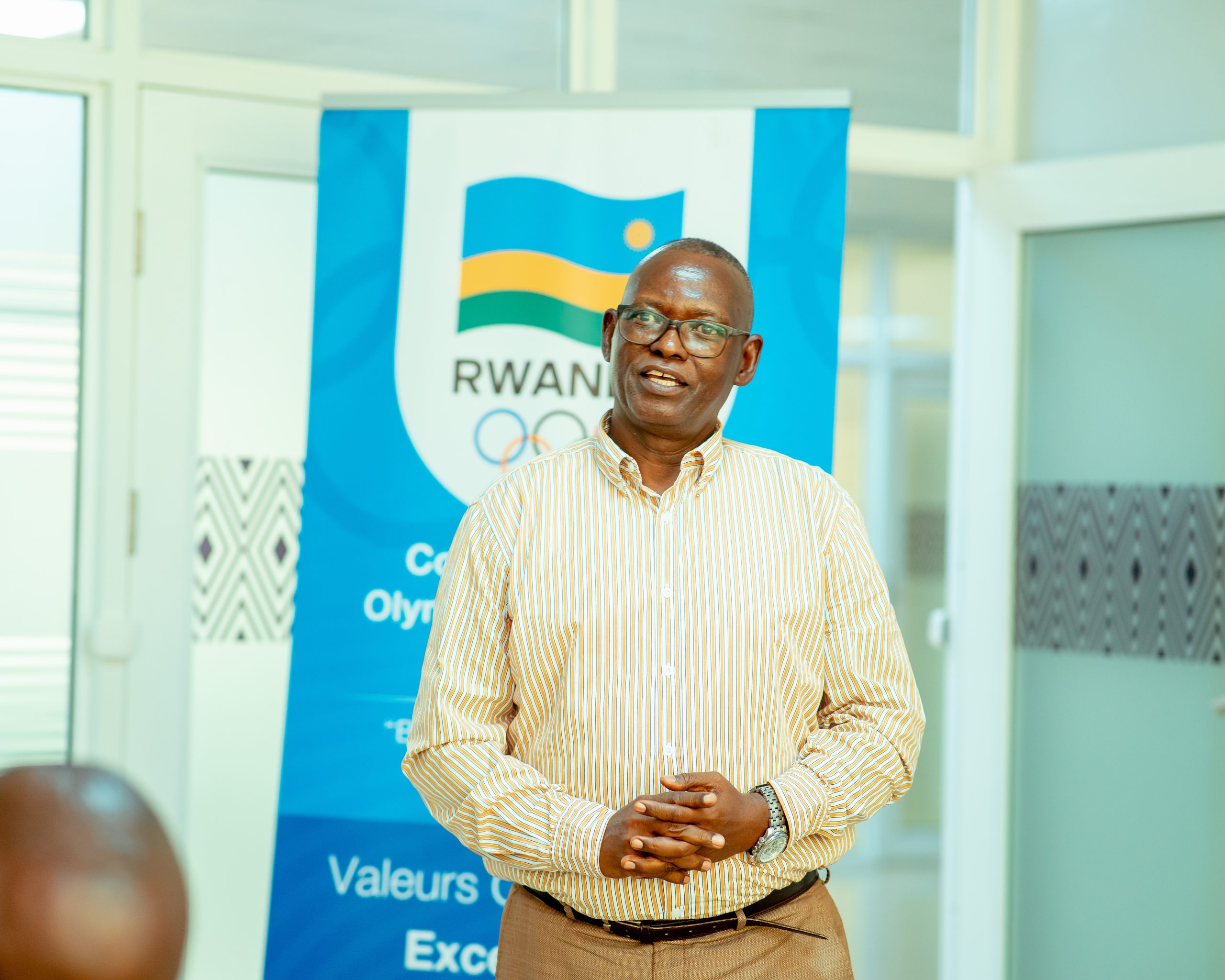
The workshop concluded with a certificate ceremony, recognizing the educators’ efforts and their readiness to serve as Anti-Doping focal points within their federations. RNOSC Secretary General Joseph Kajangwe underscored the importance of the initiative: “Doping is a tragedy not only for athletes but for nations and international competitions. These workshops will continue because we are all committed to clean sport.”
